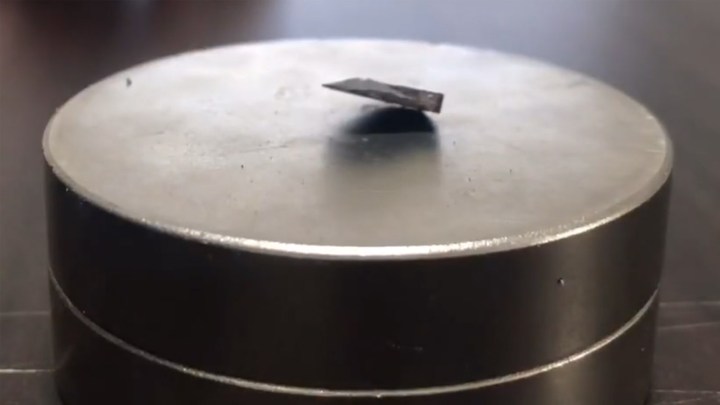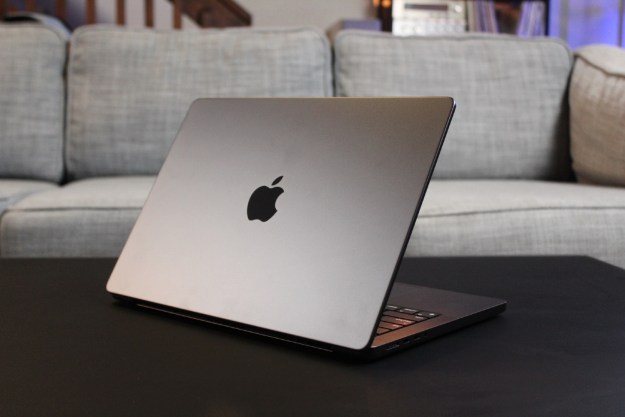Room temperature superconductors are a scientific holy grail. They’re like economically viable carbon capture, nuclear rocket engines, or energy net-positive fusion reactions. They’re something that should be doable, we think we can do it, but we just haven’t quite got there yet, despite years of efforts. Except, someone’s now claiming to have done just that.
It’s still early days. These are mere research papers and have yet to be peer-reviewed. But if they prove true, if it’s a phenomenon that can be repeated, and especially so in the manner the papers’ authors claim, we could be on the cusp of a technological revolution that could impact everything from global energy grids to quantum computing.

What are room temperature superconductors?
Superconductors are materials that can conduct electrical current with zero resistance. While materials like copper and silver are incredibly efficient conductors, even they offer some mild resistance, which turns into heat. That means that eventually, an electrical current within a circuit expires. In a superconductor, it wouldn’t. You could theoretically charge a superconducting circuit with energy, then disconnect a power source, and that circuit would remain powered until it was decharged in some fashion, or it lost its superconducting state.
This has lots of exciting uses, but the traditional problem with superconductors is that they require extremely low temperatures and/or high pressure. That requires special equipment and a lot of consistent energy to achieve such states, which makes the practical capabilities of traditional superconductors extremely limited.
Room temperature superconductors are superconductors that can operate at room temperatures. That might sound glib, but it’s exactly what it sounds like. Creating a superconductor without the need for extreme temperatures or pressure would be a breakthrough of staggering proportions.
Why are people talking about them now?
Two new research papers have been published by a South Korean team at the Quantum Energy Research Centre that claims not only to have achieved superconductivity at room temperatures but at ambient pressures too. This would be an incredible advancement in the field since one of the best attempts at such a superconductor to date has been hydrogen sulfide, which exhibits superconductivity at a balmy -70 degrees centigrade with an unfathomable pressure of 1.5 million bar.
The researchers claim that their modified version of lead apatite has done it without any of those stipulations. This is momentous news.
That’s enough to raise skeptical eyebrows from the international physics community. And with good reason. These papers are not yet peer-reviewed, and the claims the papers are making are in the extreme.
But there are some real reasons to believe these papers are true. Beyond the firm standing for the parties involved, there’s the fact that two papers were submitted at all. The first was submitted by Sukbae Lee, Ji-Hoon Kim, Young-Wan Kwon, while the second was submitted by those same individuals, but with three other members of their research team included as authors. Both papers make similarly grandiose claims, but the fact that three authors were on the first is significant.
Only three people can share a Nobel prize. These researchers think they’re on to something, and they may well be.
The team also posted a video reportedly showing the material — which they’ve called LK-99 — levitating above a magnet. This sort of video isn’t uncommon for many research institutions and universities, but there’s no liquid nitrogen in sight.
There are plenty of skeptical physicists urging caution, however. Some, highlighted by PhysicsWorld, point out that the video could have been achieved without superconductivity, and that there are some discrepancies in the paper. It’s not enough to outright ignore the results, though, which means that the scientific world is waiting with bated breath to find out just how accurate these papers are.
If they’re even close to what they claim, the world could be on the cusp of real change.
What could room temperature superconductors do?
Superconductors could be used in all manner of ways to benefit humanity and advance science and technology by leaps and bounds, but they’re traditionally completely impractical for use outside of specific, typically lab, conditions. Room temperature superconductors, however, would open up a plethora of incredibly exciting advances in very short order.
The zero-resistance nature of superconductors would let us revolutionize the electrical grid, eliminating wastage through material resistance. That drops global electricity use dramatically, massively accelerating aims to bring the world to net zero. Better yet, it allows long-distance transmission of power like never before. It would unlock Sahara Desert solar panel projects or global-scale international electrical grid sharing.
Superconductors can levitate magnets. That could be used to develop a new generation of magnetic levitation vehicles, starting with trains. This could lead to a revolution in low-cost, extremely high-speed transportation that could change the way we all travel, forever. It could also lead to more efficient, longer-range electric vehicles that charge faster and last longer. In particle physics, superconductors could help build a new generation of particle accelerators, without so much of the associated monstrous cost in power and construction materials that traditional designs require.
In computing, superconductors could help develop a new generation of quantum computers, help us to keep Moore’s Law going a little longer, and make big advances in fields like AI development. In medicine, superconductors could unlock smaller, cheaper, and more efficient MRI machines.
That’s just the tip of the iceberg. Room temperature superconductors are such a pie-in-the-sky technology, that, were they truly achievable, there are undoubtedly countless unknown benefits we have yet to discover.
What now?
For now, we wait. The papers were published in mid-July 2023, so at the time of this writing, they’re still very fresh. There’s no peer review to confirm their findings, but there are many individuals and organizations around the world now looking to prove or disprove their claims. Fortunately, we may not have long to wait to hear of someone else achieving what they claim to have done.
A key takeaway from the paper — and a point of further excitement for those looking to replicate what it claims — is that not only did the team in Seoul allegedly generate room temperature superconductors, but they did so with relatively pedestrian technology. It’s not a simple process, with the material taking days of work to create, but it doesn’t involve much in the way of specialist equipment, and can apparently be created at relatively low temperatures for this sort of research.
That should mean that the phenomenon could be repeated by a great number of organizations around the world. We’re now waiting to see if they can, and do.
Editors' Recommendations
- Intel is oddly enthusiastic about AI replacing everyone’s jobs
- Why we can’t get too excited about Intel Arc Alchemist discrete GPUs just yet
- Intel Arrow Lake-P is years away, but here’s why we’re already excited about it



